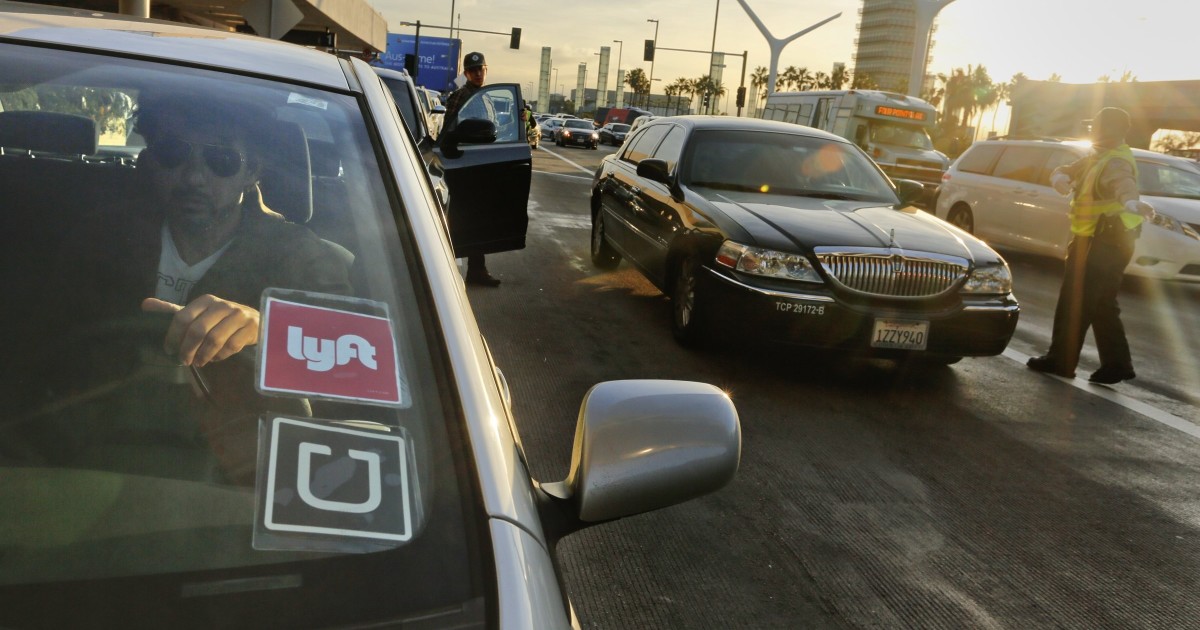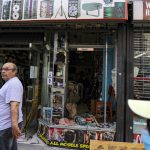
California’s huge experience-hailing and delivery providers endured a setback Friday as a point out Top-quality Courtroom judge invalidated a 2020 ballot proposition that allowed Uber, Lyft, DoorDash, Instacart and other application-centered corporations to classify their personnel as unbiased contractors.
In a lawsuit introduced by the Service Personnel Intercontinental Union and many motorists, Alameda County Top-quality Courtroom Decide Frank Roesch dominated that Proposition 22 is unconstitutional and unenforceable.
Which is in section due to the fact the law, Roesch wrote, infringes on the electric power of the Legislature explicitly granted by the point out Structure to regulate payment for workers’ accidents.
“If the persons desire to use their initiative ability to prohibit or qualify a ‘plenary’ and ‘unlimited’ power granted to the Legislature, they have to initially do so by initiative constitutional modification, not by initiative statute,” the decide wrote.
By including language aimed at protecting against drivers from unionizing, the ballot evaluate also violates a constitutional provision that needs regulations and initiatives to be restricted to a one subject, Roesch ruled.
Proposition 22 statements to shield Californians who select to get the job done as impartial contractors, but it also “obliquely and indirectly” helps prevent them from bargaining collectively, he wrote.
That prohibition “appears only to defend the financial interests of the network businesses in acquiring a divided, un-unionized workforce, which is not a stated aim of the laws.”
Since a ballot initiative are unable to be amended soon after it is passed by voters, any unconstitutional provision renders it unenforceable.
Trip-hailing business Uber vowed to charm. “This ruling ignores the will of the too much to handle the vast majority of California voters and defies both logic and the legislation,” said spokesperson Noah Edwardsen. “We will attraction and we count on to get.”
Uber and other gig economy companies spent a lot more than $220 million past 12 months in the nation’s costliest-at any time ballot initiative campaign to exempt their motorists from a 2019 legislation, AB 5, demanding gig staff across quite a few industries to be labeled as workers with gains such as minimal wage, overtime and workers’ compensation in scenario of injuries.
Californians overwhelmingly accepted the ballot evaluate, which received with 58% of the vote in the November election.
“They tried out to raise their revenue by undermining democracy and the state Constitution,” claimed Bob Schoonover, president of SEIU California Condition Council, in applauding the ruling. “For two many years, motorists have been saying that democracy simply cannot be bought. And today’s selection demonstrates they have been appropriate.”
UC Berkeley regulation scholar Catherine Fisk, who submitted an amicus brief in the case on behalf of the plaintiffs, explained the businesses are probable to gain a continue to be on the judge’s ruling in the subsequent two weeks.
After consideration by the point out court of appeals, it will ultimately be resolved by the California Supreme Court docket, she claimed, incorporating that the method could consider a year.
The California Supreme Court earlier declined to hear a constitutional problem to Proposition 22 in February, ordering the plaintiffs to to start with file the go well with in a decreased venue.
Experts have reported most actions that appear on the ballot by means of a signature-accumulating procedure in California inevitably facial area a legal obstacle. And typically, California courts are frequently hesitant to overturn ballot steps for the reason that the go can be viewed as difficult the will of the persons.
Geoff Vetter, a spokesman for the Safeguard App-Primarily based Motorists & Solutions coalition, fashioned by the firms to direct the professional-Proposition 22 campaign previous year, known as the final decision “outrageous” and “an affront to the too much to handle the greater part of California voters who handed Prop. 22.”
Proposition 22 bitterly divided drivers, with some backing the initiative and many others — in groups this kind of as Los Angeles-centered Rideshare Drivers United and San Francisco-based Gig Personnel Soaring and Mobile Staff Alliance — filing an amicus temporary against the evaluate.
The businesses function “way below labor expectations,” claimed Nicole Moore, an organizer with the Los Angeles team. “Most voters imagined they ended up supporting drivers. Motorists have seen just the opposite of help.”
Veena Dubal, a UC Hastings School of the Law professor and longtime critic of the ride-hailing organizations, stated Proposition 22 “is an particularly, extremely extensive regulation. This is the 1st selection of several that I believe will present its company overreach.”
The ruling comes at a time when the firms are battling efforts in Massachusetts and other states to classify their workers as employees somewhat than independent contractors.




